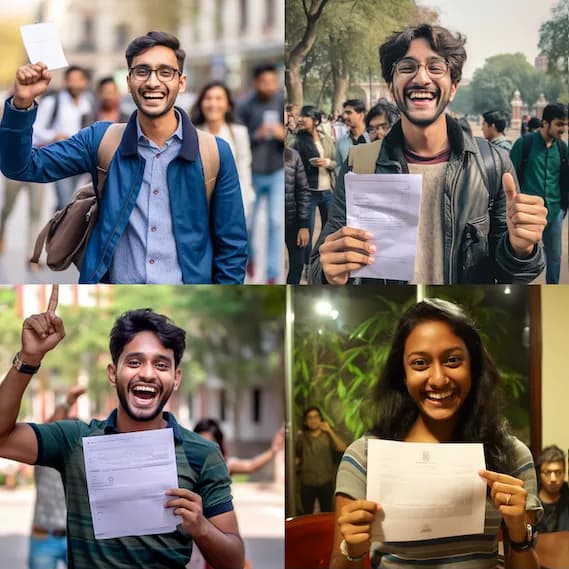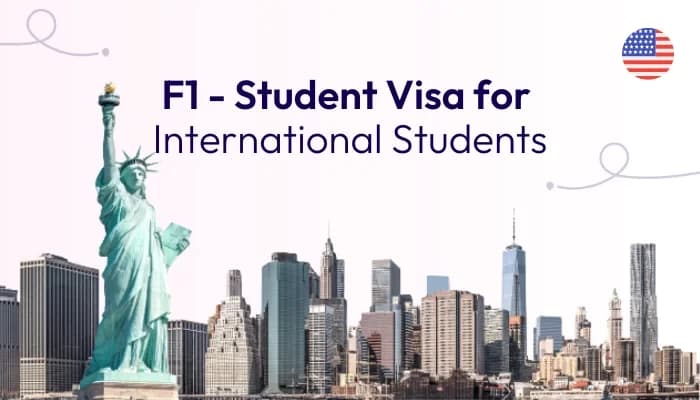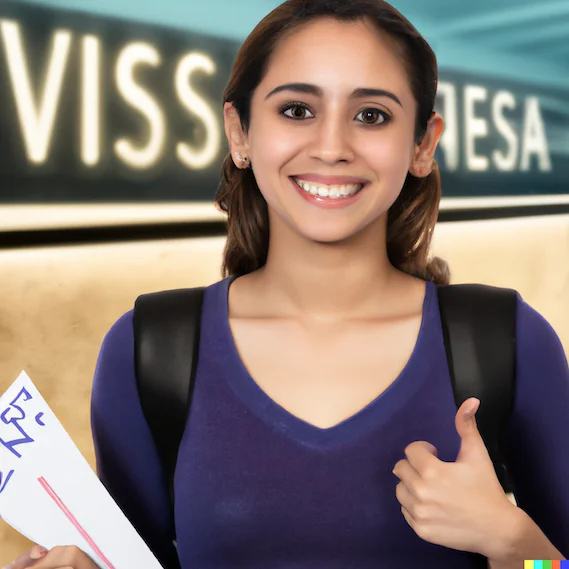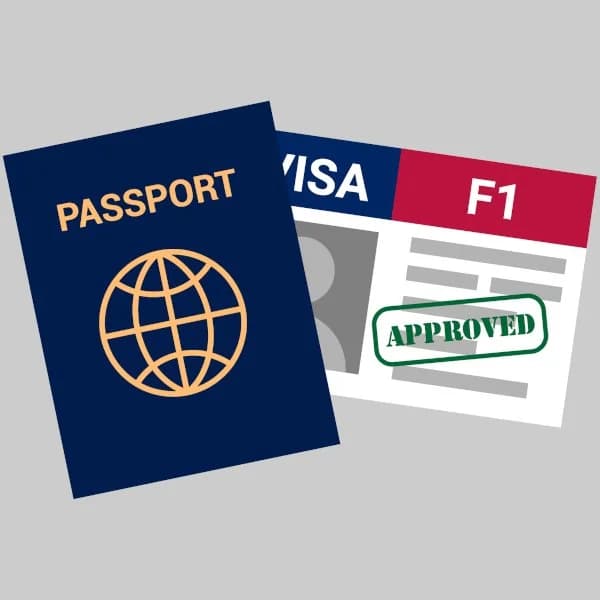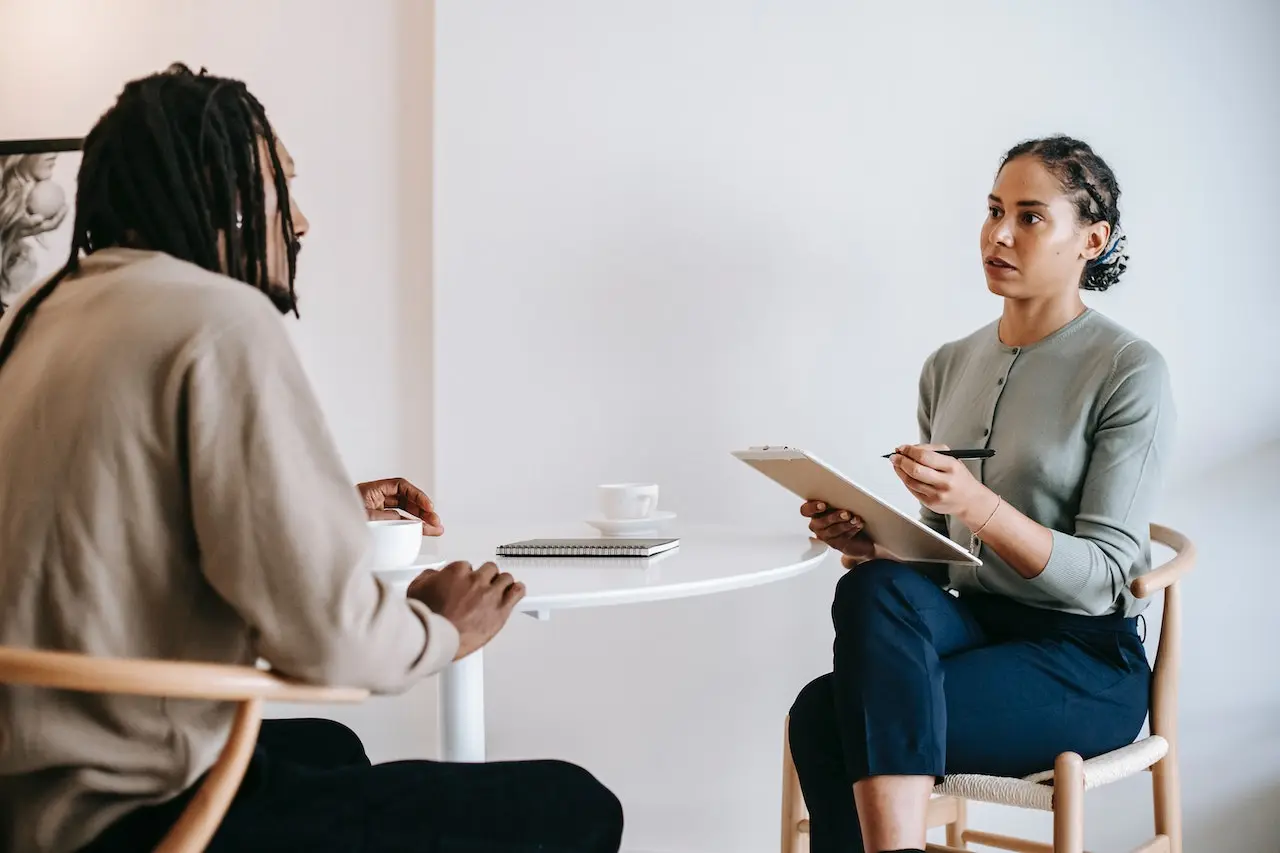What does a US Visa Officer know About you before the F1 Visa Interview?
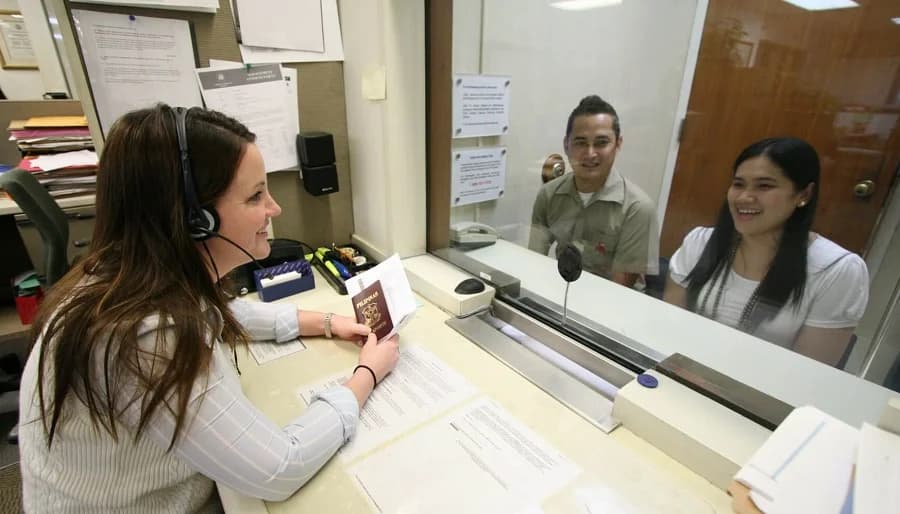
Key Highlights
- Visa officer checks DS-160, I-20 forms, and background during the interview.
- DS-160 includes personal, educational, work, travel history, and visa rejection details.
- I-20 shows academic program, duration, and financial support information.
- Background check includes identity verification and security clearance.
- Social media profiles may be reviewed to align with visa application.
As you prepare for your F-1 visa interview, it's natural to feel a mix of excitement and anxiety. Knowing what the US visa officer already knows about you before the interview can help you feel more prepared and confident. In this article, we'll explore the information that visa officers have access to, and provide some specific examples to help you better understand the process.
Do US Visa Officers Check Student Profiles Before the Interview?
When you go for your US visa interview, the visa officer who will interview you is usually chosen at random just before your interview starts. This means they won't know anything about you until you meet them at their counter. During your interview, they'll look at your DS-160 form, your I-20 form, and any background checks. That's when they'll first learn about your details.
Now, let's understand what information the US visa officer will have about you.
1 .Your online visa application (DS-160)
During the interview, the visa officer will have access to your online visa application, known as the DS-160. This application form contains your personal information, education, work history, travel history and previous rejection history if you have. The DS-160 includes details such as:
- Name, date of birth, and nationality
- Educational background, including degrees earned and institutions attended
- Work experience, including job titles, employers, and employment dates
- Travel history, including previous visits to the US and other countries, and the purpose of those trips
- Previous Visa Rejections History if you have any
- Make sure the information provided in your DS-160 is accurate and up-to-date, as inconsistencies may raise red flags during the interview.
Example: An applicant's I-20 form shows that they have received a partial scholarship from their US university. The visa officer might ask the applicant about their plans to cover the remaining expenses, such as personal savings, family support, or additional scholarships.
2. Your I-20 form
The visa officer will also review your I-20 form, provided by your US school. This document includes details about your academic program, duration of study, and financial information, such as:
- School name and location
- Program details, including major or field of study, start and end dates, and degree level
- Financial support, including estimated tuition, living expenses, and proof of funding (e.g., personal funds, scholarships, or sponsorships)
- Ensure that you understand the information on your I-20 form, and be prepared to discuss your academic and financial plans during the interview.
Example: An applicant's I-20 form shows that they have received a partial scholarship from their US university. The visa officer might ask the applicant about their plans to cover the remaining expenses, such as personal savings, family support, or additional scholarships.
3. Background check and security clearance
Before your interview, a background check and security clearance are conducted. This process may include:
- Identity verification, including checking your passport and other identification documents
- Criminal records, including arrests, convictions, or outstanding warrants
- Security threats, such as potential links to terrorism or extremist groups
- If there are any issues with your background check, you may be asked to provide additional information or clarification during the interview.
Example: An applicant has a prior arrest for a minor offense in their home country. The visa officer might ask for more information about the incident and any subsequent legal proceedings, to determine whether it could affect their eligibility for an F-1 visa.
4. Social media presence (sometimes)
In some cases, visa officers may review your social media presence during the interview. Although this is not a standard procedure, it's essential to ensure that your online presence aligns with your visa application and intentions. Some tips for managing your social media presence include:
- Be cautious with your posts, and avoid sharing controversial or provocative content
- Consider adjusting your privacy settings to limit public access to your profiles
- Review and remove any content that may be inconsistent with your visa application or educational goals
Example: An applicant's social media profile shows that they frequently post about their passion for filmmaking. The visa officer might ask how this interest relates to their chosen field of study in the US, or if they plan to pursue it further while attending school.
Frequently Asked Questions
-
Do visa officers check my details the day before the interview?
No, visa officers do not check your details the day before the interview. They review your information only during the time of the interview.
-
Do US visa officers know how many universities I applied to?
No, US visa officers do not have information about how many universities you applied to.
-
Do US visa officers know about my past visa denials?
Yes, US visa officers have access to your visa history, including any past visa denials. This information is part of your record and is considered during the visa application process.
-
What personal information does a US visa officer know about me during the F1 visa interview?
Before the interview, the visa officer has access to your personal information submitted via the DS-160 online visa application. This includes your name, date of birth, nationality, educational background, work history, travel history, and any previous visa rejections.
-
How important is the accuracy of the DS-160 application form?
It's crucial that the information provided in your DS-160 is accurate and up-to-date. Inconsistencies in your application can raise red flags during the interview and affect the outcome of your visa application.
-
Can the visa officer access my criminal record?
Yes, a background check is conducted before your interview, which includes checking for any criminal records, arrests, convictions, or outstanding warrants. You may need to provide additional information or clarification about any such records during the interview.
-
Will the visa officer check my social media profiles?
In some cases, visa officers may review your social media presence. This isn't always standard but it’s important to ensure your online presence aligns with your visa application and educational intentions.
-
What should I do if there's an issue with my background check?
If there are any issues with your background check, be prepared to provide additional information or clarification during the interview. This can include details about any past incidents and legal proceedings.
Conclusion:
Now that you know what a US visa officer knows about you before your F-1 visa interview, you can prepare accordingly and approach the interview with confidence. Good luck, and remember that thorough preparation is the key to success!
If you found this useful, these blogs below offer a similar perspective:
F1 Visa Interview Questions with Tips and Sample Answers
Top 25 F1 Visa Interview Questions and Answers
F1 Visa Interview: Why not other country? Why not UK, Australia or Canada?
Have Questions About This Topic?
Join our community to get personalized advice and share experiences with others going through similar visa processes.
